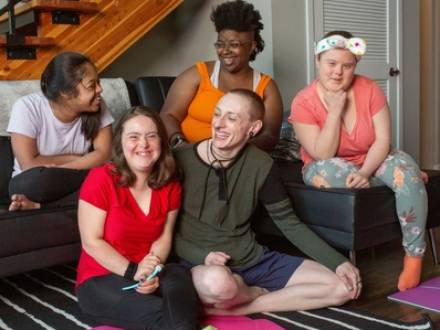 Stars
StarsVulnerable Adult Abuse in Maryland Group Home
 Several months ago, two individuals in Maryland were arrested on charges of vulnerable adult abuse after an investigation into an incident that occurred in a group home in Trappe. The two were charged with vulnerable adult abuse, second-degree assault, false imprisonment, and reckless endangerment. This particular group home houses non-verbal, disabled adults who require round-the-clock care.
Several months ago, two individuals in Maryland were arrested on charges of vulnerable adult abuse after an investigation into an incident that occurred in a group home in Trappe. The two were charged with vulnerable adult abuse, second-degree assault, false imprisonment, and reckless endangerment. This particular group home houses non-verbal, disabled adults who require round-the-clock care.
A staff member coming onto their shift discovered one of the residents with his hands and feet bound; it was estimated the resident had been like that for approximately six hours. Unfortunately, vulnerable adults experience abuse and neglect far more often than should ever happen. If a loved one of yours has suffered abuse or neglect while in a group home, it is extremely important that you speak to a knowledgeable Hagerstown, MD group home abuse lawyer.
Are Group Homes Like Nursing Homes?
Group homes are similar to nursing homes but on a much smaller scale. Those who have disabilities or mental health conditions and who need more specialized care are often placed in group homes. Those in group homes may require daily living assistance but may be able to do some things on their own as well. The goal of group homes is to give residents care while allowing them a level of independence when appropriate.
Group homes, like nursing homes, are meant to be safe environments for residents, yet often, they house staff members who are overworked, underpaid, and may not care for the residents as they should. There are different types of abuse and neglect that can occur, including:
- Physical abuse can involve hitting, shoving, slapping, restraining, or using any type of physical force on a resident.
- Emotional abuse can include threatening a resident, isolating the resident, name-calling, humiliation, and yelling.
- Sexual abuse includes unwanted sexual contact, harassment, or exploitation. It is important to note that those with disabilities who reside in group homes are typically not mentally competent to provide consent.
- Financial abuse and exploitation occur when staff take advantage of the finances of residents, including theft, unauthorized purchases, and misuse of funds.
Neglect of residents occurs when staff members do not pay proper attention to residents and fail to provide basic needs like medication, water, food, and hygiene.
How Do You Know Group Home Abuse or Neglect Has Occurred?
It is important to take symptoms of abuse or neglect seriously. If physical injuries are present, ask staff members how the injuries occurred. While a resident could fall on his or her own or otherwise be injured, if the injuries continue, abuse should be suspected. Any behavioral changes, including anxiety, depression, withdrawal, and fearfulness, should be cause for concern. If a resident’s possessions seem to be missing or unauthorized financial transactions have occurred, abuse or neglect could be present.
Inadequate staffing is one of the primary issues in nursing homes and group homes. When there are too few staff members, residents can slip through the cracks and may not receive appropriate care and supervision. Even when there are sufficient staff members, they may not be properly trained or supervised. Inadequate training of staff members can place residents in danger, particularly when they have high-level needs.
Contact a Washington County, MD Group Home Abuse Lawyer
It can be traumatic for a loved one to suffer abuse or neglect while in a group home, and it can be traumatic for you as well. When you believe your loved one is being taken care of, it is jarring to find out this is not entirely true. A Hagerstown, MD group home abuse attorney from Serafini Law can help you determine what steps you need to take to receive justice for your loved one. Attorney Serafina grew up in Hagerstown and is very active in his community. He has twelve-plus years of experience and gives each case his personal attention. Call 240-744-1600 to schedule your free consultation.





